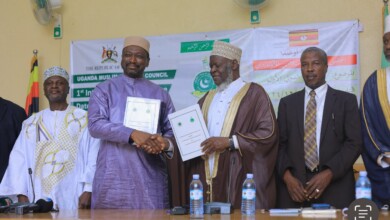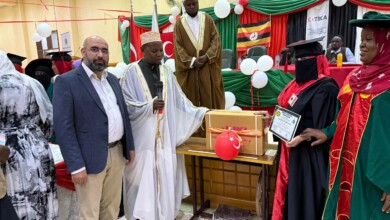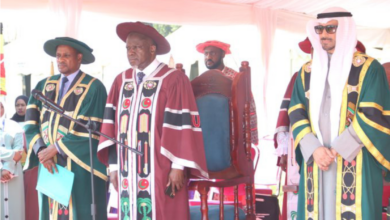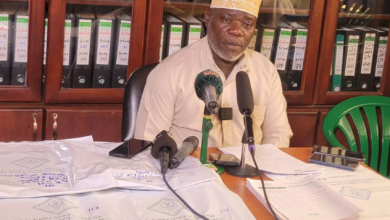UMSC wrangles: Court hurts Sheikh Ssemambo’s hopes
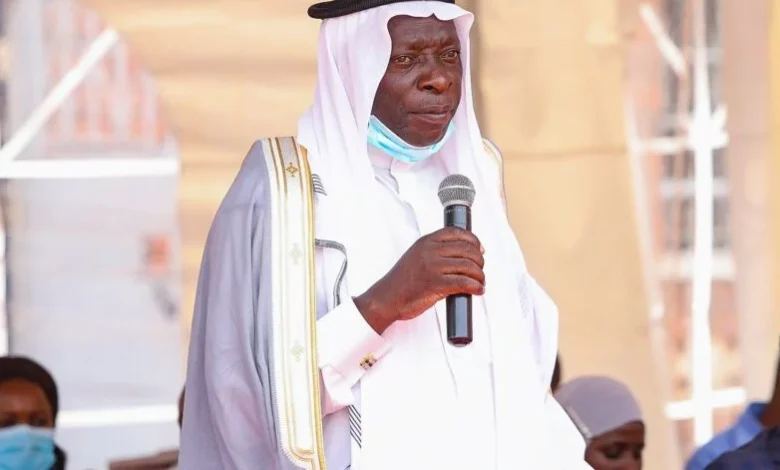
By Abdul-Wahid Kakande
High Court judge, Douglas Singiza, on January 3, left a sour taste in the mouths of Sheikh Abdallah Ssemambo’s supporters, passing a judgment that many in Ssemambo camp deemed unfair.
The former 1st deputy Mufti leads a faction of the Uganda Muslim Supreme Council (UMSC) general assembly, which is opposed to the Muftiship of Sheikh Shaban Ramathan Mubaje.
Armed with orders issued by the beleaguered Justice Faridah Bukirwa, a section of the UMSC general assembly members met at Gangu Primary School in Wakiso, in December 2023, and passed a series of resolutions among which was the suspension of Sheikh Mubaje, and appointed his then deputy, Sheikh Ssemambo, as the interim Mufti.
However, Singiza’s ruling not only overturned Bukirwa’s judgment and orders but also annulled resolutions passed by the December 2023 UMSC general assembly meeting.
The court decision, therefore, rendered Ssemambo’s appointment as interim Mufti null and void, and confirmed Mubaje as the legitimate Mufti of Uganda.
Judge Singiza, in his ruling, advised the warring UMSC factions to pursue arbitration to resolve their disputes, as stipulated under Article 28 of the UMSC Constitution (as amended in 2022).
Singiza’s orders have, however, been rejected by the Ssemambo faction.
Sheikh Mohamed Irumba, the deputy Mufti in Ssemambo’s camp, stated that they will pursue both legal and administrative measures to have the decision overturned andseekdisciplinaryactionagainstthejudge.
“We reject this ruling. It will not stand because Justice Bukirwa’s orders had already been fully implemented,” Irumba said. He further criticised the idea of arbitration, arguing that it would be unjust to approach an arbitration committee controlled by Sheikh Mubaje, whom they consider the aggressor in the dispute.
Irumba acknowledges the potential value of arbitration but insists that sending “the oppressed to the aggressor” for arbitration is unfair. “There are many cases under arbitration in the courts. We believe this judge made a blunder, and we shall not rest until he has been punished,” Irumba said.

In his ruling, Singiza invoked the religious question doctrine, referring the case to the Muslim Arbitration and Conciliation Council (MAC) for resolution. He emphasised that resolving the matter within MAC would help uphold UMSC’s institutional integrity and foster cohesion within the Muslim community in Uganda
“In view of a clear arbitral clause embedded in Article 28 of the UMSC constitution, a clear error on the face of the record emerges which then must be corrected by this court. This court hereby reviews and wholly sets aside the judgment and orders in Company Cause No. 002 of 2023. All the parties concerned should consider exploring the arbitral role of the MAC in terms of Section 9 of the Arbitration and Conciliation Act and Article 28 of the UMSC constitution in order to resolve their disputes,” Singiza ruled.
Article 28 of the UMSC Constitution grants MAC the authority to resolve disputes within the Muslim community, excluding electoral matters. The article covers issues related to the management of UMSC affairs, contract disputes, and interpersonal conflicts.
Justice Singiza, in his ruling, criticised the petitioners for bypassing MAC and going directly to the courts. He noted that the matters in dispute, including allegations of mismanagement of Muslim properties by Mubaje, conflicts over governance, and resolutions passed at an extraordinary general meeting, fall squarely within MAC’s jurisdiction. “By bypassing MAC, the parties violated the dispute resolution framework outlined in Article 28 of the UMSC Constitution,” Singiza said.

Singiza also found fault with Justice Bukirwa’s failure to consider the arbitration provisions of the UMSC Constitution, noting
that the court’s decision to remove Mubaje from office was procedurally flawed, as Mubaje was not a party to the proceedings.
The judge further defended his decision to review the case, citing an apparent error in the record that warranted correction under Order 46 Rule 1 of the Civil Procedure Rules. He emphasized that his ruling aligned with evolving jurisprudence in Uganda, where courts invoke the religious question doctrine to handle doctrinal disputes within religious communities.
Mufti Mubaje welcomed the ruling, saying that it empowered the Muslim community to resolve their disputes internally as provided for under the amended 2022 UMSC constitution. “I welcome this court judgment because it has clearly come out to empower the muslim community to first sort out our own misunderstandings and disputes before rushing to courts of law,” Mubaje said.
However, Sheikh Hassan Mayambala, a prominent cleric, questioned the effectiveness of arbitration within the deeply divided Muslim community. He pointed out that key figures on the MAC, such as Sheikh Obeid Kamulegeya, have been involved in the ongoing conflicts.
“MAC is chaired by Sheikh Kamulegeya, who played a part in the parallel Muslim administration at Kibuli. Given his history, it is hard to see him presiding over neutral proceedings,” Mayambala said.
He argued that unless those involved in the arbitration are respected figures who have not been part of the conflicts, the process may fail to resolve the divisions within the community.
The case began in 2020, when Yudaya Babirye and Burhan Hussein Namanya filed a case in Jinja High Court, seeking, among other things, a special UMSC general assembly to address alleged mismanagement of UMSC affairs under Mubaje’s leadership.
It was initially assigned to Bukirwa but was later transferred to Singiza following a complaint from Sheikh Mubaje.



